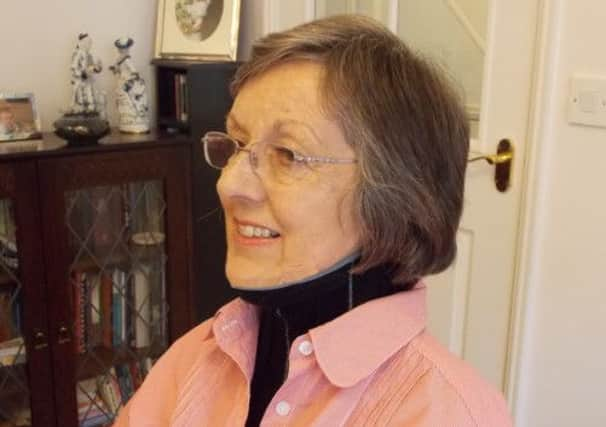Yorkshire experts step in to help motor neurone disease sufferers


Patients with motor neurone disease (MND) are left unable to support their head, speak properly or eat without assistance as their muscles progressively fail to work.
Those with the illness wear a neck collar to help support their head but now researchers in Sheffield have developed a new device which is set to be comprehensively tested among patients later this year.
Advertisement
Hide AdAdvertisement
Hide AdMoya Briggs, 67, of Doncaster, was diagnosed with the less aggressive form of MND four years ago.
She chose to take part in a unique patient-led project called Head-Up to create a more effective collar.
She said: “I hate the current collar I have to wear, absolutely hate it. When I’m wearing it I feel like an Egyptian mummy, all choked around my neck.
“For it to give me enough support I’ve got to have it really tight and when it’s tight I feel like I’m choking in it.
Advertisement
Hide AdAdvertisement
Hide Ad“It makes me feel as if I’m only partly communicating with the world.
“I hate the look of my current collar too and I cover it with a scarf.
“The fact that this new collar is inconspicuous and comfortable will make all the difference.”
The award-winning project is a collaboration between staff at Sheffield Teaching Hospitals NHS Foundation Trust and the city’s two universities.
Advertisement
Hide AdAdvertisement
Hide AdThe team took a radical look at existing collars and designed the new device to sit low on a patient’s neck and offer support along the contours of neck muscles, making it much easier for patients to carry out everyday tasks among them eating and communicating.
Mrs Briggs said: “The whole device is very inconspicuous and provides so much more support.
“It was wonderful for me because the muscles at the back of my neck usually feel the strain but I could instantly feel the relief in my neck. I think it’s going to be a great relief to a lot of people.
“Every time I go out I will be wearing it and I need it for when I’m on the computer or if I’ve got to sit at the table or do anything for a long period of time.”
Advertisement
Hide AdAdvertisement
Hide AdThe team was brought together and given early funding by the National Institute for Health Research’s Devices for Dignity (D4D) healthcare technology co-operative.
The organisation, which is hosted by the Sheffield hospitals NHS trust, brought together designers and engineers from Sheffield Hallam University’s Lab4Living, clinicians, MND nurse specialists, occupational therapists, physiotherapists and medical engineering experts from Sheffield University and the NHS trust. The group was supported by MND patients and carers through the Motor Neurone Disease Association.
D4D is also leading the regulatory, evaluation and commercialisation work to put the collar as quickly as possible into the hands of patients.
MND affects around 5,000 people in the UK, claiming the lives of around five each day.
Advertisement
Hide AdAdvertisement
Hide AdLife expectancy for most people with the condition is between two and five years and around half die within 14 months of diagnosis.
It leaves people unable to walk, talk or feed themselves as their muscles refuse to work but their senses and intellect usually remain unaffected.